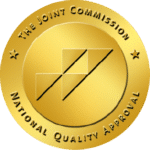By Clear Mind Treatment staff.
In any given year, one in five adults experiences a mental health condition. If you live in Santa Monica and are struggling with a mental illness or know someone who is, it can be difficult to know where to turn for help. Fortunately, there are several excellent resources available to you or your loved one. Mental health issues are common and can affect anyone at any time in life. Dealing with them head on will improve your quality of life and increase your chances of recovery. The following article will introduce you to the world of mental health and services offered in Santa Monica.
Symptoms of depression and anxiety
Clinical depression is the persistent feeling of sadness that interferes with your daily life. It can also cause you to feel less interested in things you usually enjoy. Symptoms may come and go throughout life, but when they last for two weeks or more, they may require treatment. Clinical anxiety is an overwhelming sense of worry and fear that interferes with daily life. Symptoms of anxiety include feelings of restlessness, irritability, difficulty concentrating and sleeping, a tendency to feel on edge or easily startled, and a sense of dread that something bad will happen. Everyone has felt anxious or worried at some point in their lives, but when these feelings interfere with your daily life and don’t go away, it may be a sign of an anxiety disorder.
Big City stresses and How it Produces depression
Living in a big city, like Santa Monica, especially when you are not familiar with the culture, can cause a great deal of stress. This is especially true for those who are new to the city. It can be hard to make friends and be accepted when you don’t know your neighbors. If you are not in a supportive environment, you might be more likely to develop a mental health issue. Cultural differences, financial issues, and language barriers can also cause added stress. Additionally, if you lack a support system, you may feel more isolated and at risk for developing mental health issues. Other environmental factors, such as pollution, noise, and lack of access to green spaces, can also increase stress and lead to mood disorders.
Counseling and Therapy
Counseling and therapy are two types of mental health services that can be useful when dealing with anxiety and depression. Both types of mental health services involve talking with a therapist to process and work through your thoughts and feelings. Types of therapy include Cognitive Behavioral Therapy (CBT), Dialectical Behavioral Therapy (DBT), Eye Movement Desensitization and Reprocessing (EMDR) and Psychoanalysis. It is best to find a therapist or counselor who is a good fit for you. For example, you might want to find someone with experience treating your particular issue. It is also important to feel comfortable and trust your therapist.
Medication Help
While everyone has their own feelings about taking medication and therapy, medication can be very helpful in treating certain mental health conditions. There are many different types of medications for mental health conditions and finding the right ones for you can take some time. Speaking with your mental health provider can help you decide if taking medication is right for you.
Ketamine for depression
Ketamine is a drug that is used in hospitals as an anesthetic. However, new research suggests that it may be helpful for people with severe depression that doesn’t respond to other treatments. Studies have shown that ketamine may provide quick relief from depression symptoms and increase a person’s ability to engage in therapy. While ketamine is not a cure for depression and its long-term effects are unclear, it could be a helpful addition to standard depression treatment.
Intensive Outpatient programs for depression and anxiety(IOP)
For those who are dealing with depression and anxiety, an intensive outpatient program (IOP) is a treatment option. An IOP combines therapy and medication, giving you a flexible schedule that allows you to continue working and living in your normal environment. This treatment option is often recommended for people with mild to moderate depression who do not need to be inpatient.
Conclusion
Depression and anxiety are common mental health conditions that affect people of all ages, cultures, and social groups. These conditions can be treated, and there are many resources available to help individuals get the support they need. If you are experiencing symptoms of depression or anxiety, it is important to seek help. The sooner you receive treatment, the better your chance of recovery. Mental health conditions are common and can affect anyone at any time in life. Dealing with them head on will improve your quality of life and increase your chances of recovery.








